Cambodia has made enormous strides forward since its darkest decades. Phnom Penh feels like a boom town in parts. Chinese money is transforming skylines, building airports and transforming the look and feel of the country.
The temples of Angkor have kept me captivated for more than thirty years. I still visit most years, and still find the place breathtaking (see the video above). It's the mix of experiences that make Angkor so magical - the awesome scale of the temples and the intricacy of the carving, their gradual surrender to a relentless tide of jungle encroachment, the incredible forest setting and the fact that Siem Reap, the base for temple exploration, is such a charming, chilled place to spend time. Angkor's bicycle friendly too - another major bonus. For more on Angkor, head over to our guide here.
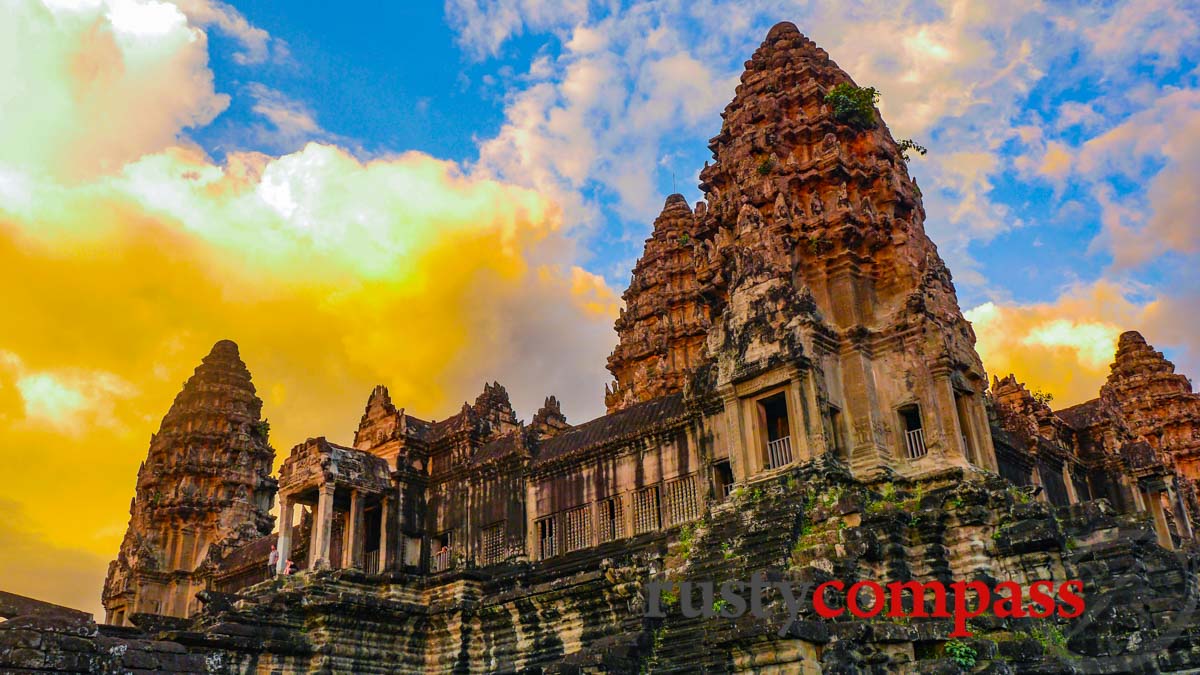
Photo: Mark Bowyer Angkor Wat
Cambodia's capital Phnom Penh has a distinctive buzz with plenty of history, colonial charm and things to see. The skyline has been turned on its head during the past decade. The city's food and bar scene is bounding ahead from the seediness of decades past.
Further afield the beaches, islands and quaint of towns of Kep and Kampot on the southern coast are scenic and chilled.
Sihanoukville, the largest southern coastal town has been the focus of a tourism development binge funded by Chinese gambling interests that has stripped the place of charm. In early 2020, Sihanoukville's future looks uncertain - but it remains the staging post for exploration of the islands of Koh Rong and Koh Rong Samloem.
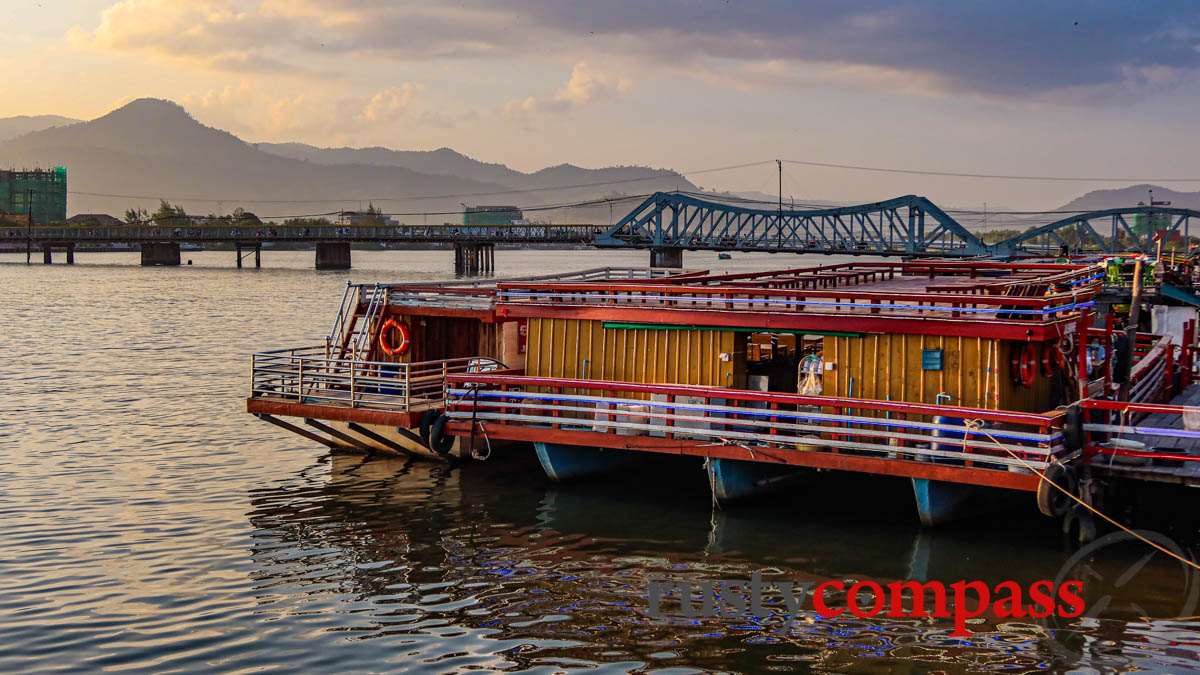
Photo: Mark Bowyer Kampot riverfront
Battambang, closer to Angkor, is an underrated stop for a taste of a quaint provincial city with a growing food and art scene. It features some of the best preserved colonial-era shophouses in the region, and there are interesting things to see nearby. Rail developments are making it a more important centre again. You'll likely hear more about Battambang in the coming years.
Most travellers combine Cambodia with visits to one or more of its neighbours - Vietnam, Thailand or Laos. It makes for a fascinating study in contrasts. Despite proximity and shared history, Cambodia has a character and culture all of its own. You'll be surprised how distinct it feels. And all through your travels, the people you meet will share an openness and warmth that, especially in light of their country's tortured recent history, will confound.

Photo: Mark Bowyer Cambodian Living Arts Performance, Phnom Penh
Cambodia - getting there and away
Both Phnom Penh and Siem Reap (Angkor Wat) are well served by international flights. If you're coming in from, or heading to, Saigon, the bus to or from Phnom Penh is cheap, reasonably comfortable and not much slower than the flight after considering messing around with airports. Road travel from Thailand involves longer rides. A rail route between Thailand and Cambodia will open in the coming years.
30 day tourist visas can be obtained at the border for most passport holders for $30US. Try and have USD at hand and a passport photo.
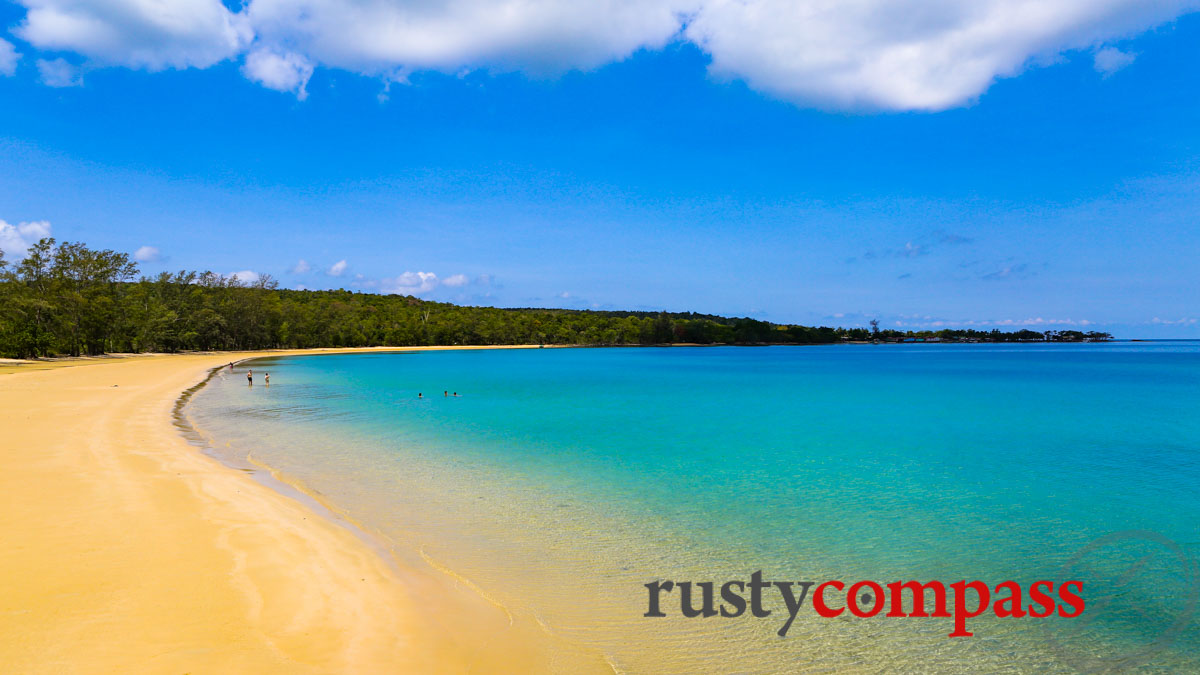
Photo: Mark Bowyer Change is coming fast to Koh Rong Samloen.
Cambodia - getting around
Good quality and reasonably priced bus services operate to Cambodia's main tourism points - between Phnom Penh and Siem Reap, the southern coast towns and on to Thailand and Vietnam. Cambodia's roads are notoriously dangerous so daytime road travel is recommended to reduce accident risks. We've used the Giant Ibis service on many occasions.
For two or more travellers, car hire is reasonably priced and provides more flexibility. Many drivers speak reasonable English. Make sure you're comfortable with the driving style of your driver. You can book with your hotel.
Rail travel is gradually developing in Cambodia - though at time of writing, it's probably best suited to rail buffs.
Getting around in Phnom Penh, Siem Reap, Battambang and Kampot has been made safer and easier with the introduction of mobile app ride hailing tuk-tuk services. They're clean, accountable and good value for money. Check the ride hailing apps from Grab or Pass App (the local version). I've had good experiences with both - and they're a big improvement on the interminable and often unpleasant tuk-tuk negotiations that often took place - especially in Phnom Penh.
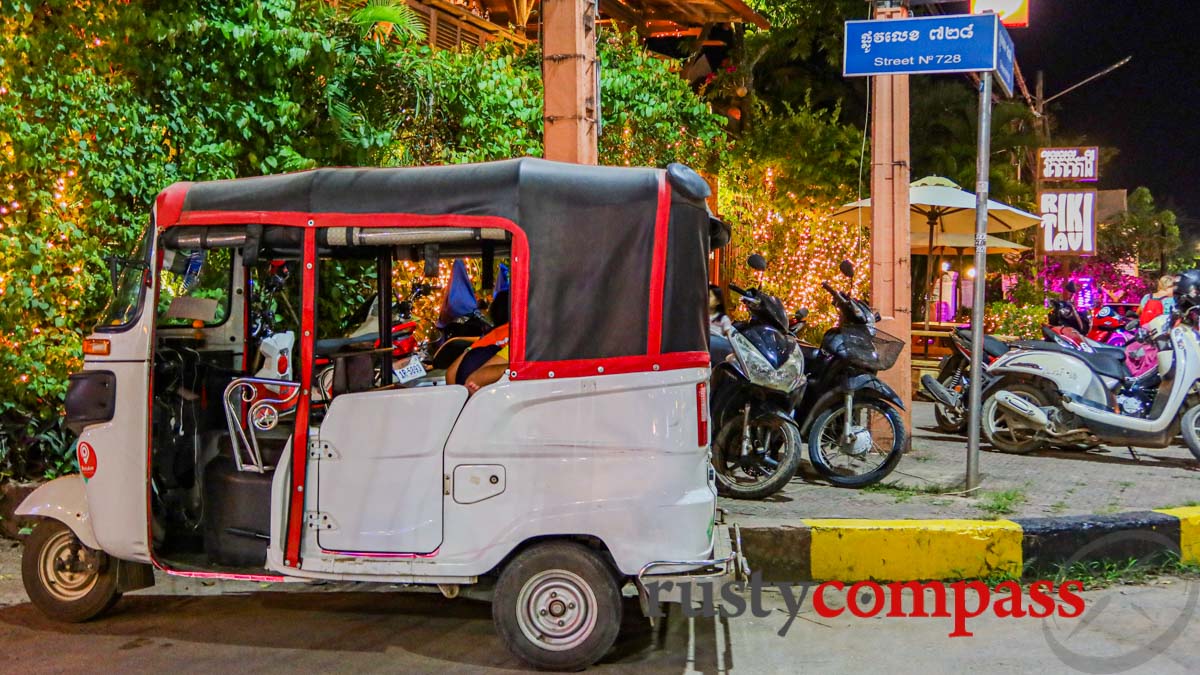
Photo: Mark Bowyer These little tuk-tuks have made getting around safer and easier.
Cambodia - health and safety
Cambodia is generally a safe place to travel but you should be alert to a few risks. Drugs and the party scene have taken a number of young lives over the past decade. Don't dabble in drugs and be cautious around the drug and alcohol fuelled party scene - especially if you're a single woman.
Cambodia's roads are dangerous. This is not the place to learn to ride a motorbike.
The usual additional precautions apply about walking around late at night, bag and camera snatching. Don't make yourself stand out too much.
Favour busy places when eating street food. Stay hydrated - dehydration is one of the biggest causes of ill-health among travellers in hot climates.
Cambodia's health system is still poor by international and regional standards. Stay healthy. If you're seriously sick or injured, you'll be better off getting to Bangkok or Singapore for treatment. There are international clinics in Phnom Penh and Siem Reap for minor issues.
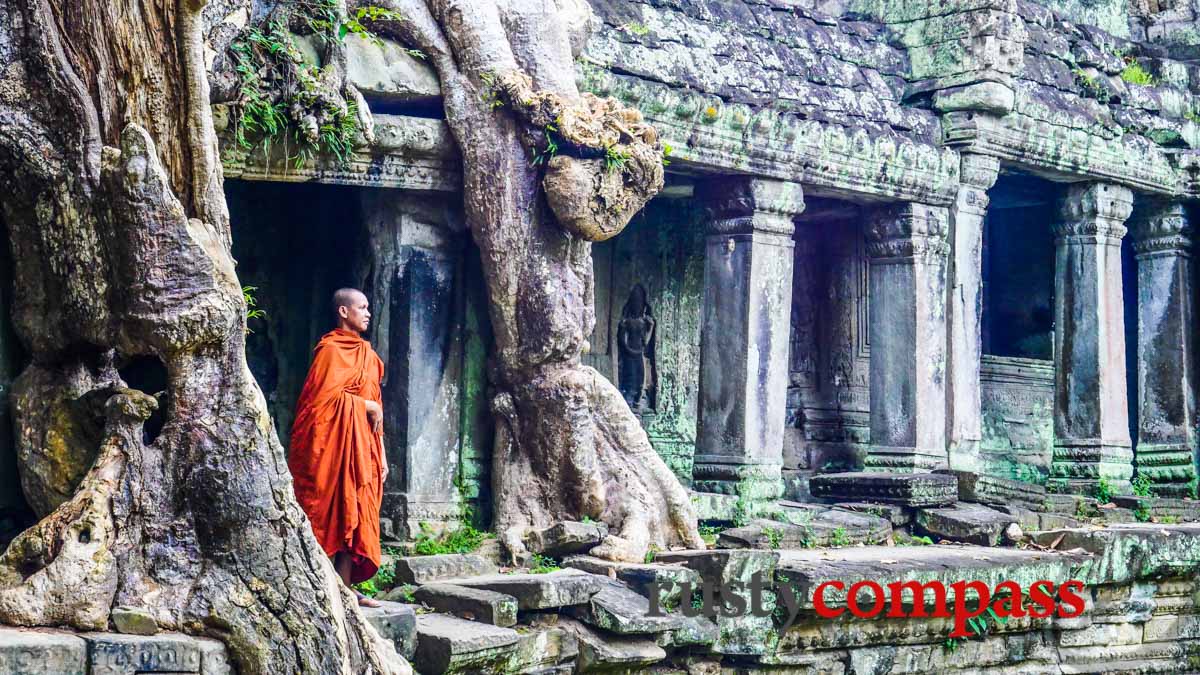
Photo: Mark Bowyer Preah Khan temple - Angkor
Cambodia - internet, 4G mobile
Cambodia has good 4G mobile internet services. Grab yourself a SIM card at the airport on arrival. I've used Cellcard and Metfone - though these days Vodafone roaming from my Australian account also works and is inexpensive in Cambodia. I find the roaming system slower than the local services so if you're staying more than a few days, grab a local SIM. Dual SIM phones are always best for travel too. Coverage of main tourist areas is good - including the temples.
Hotels, cafes and restaurants that you're likely to be eating in (except street-eats of course) will nearly always offer free and reasonable quality wifi to guests. You'll never be far from an internet connection in the main centres of Cambodia.
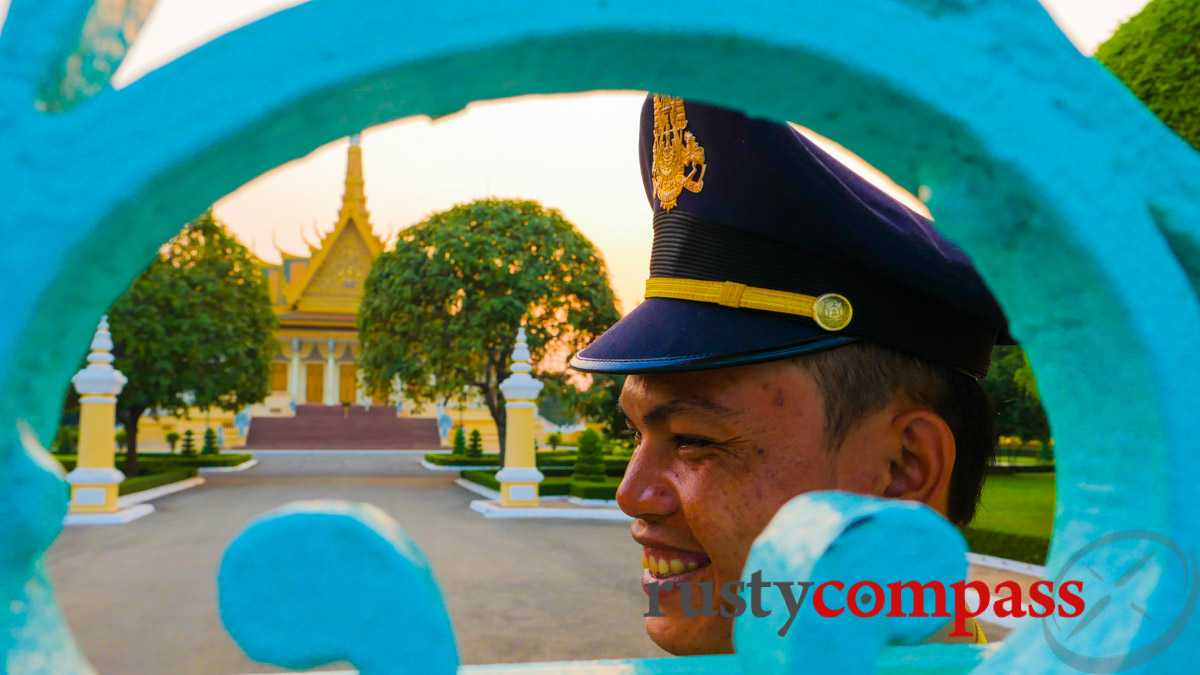
Photo: Mark Bowyer Friendly security - Royal Palace, Phnom Penh
Cambodia Cash - ATMs, credit cards, money stuff
Plenty of visitors to Cambodia still use US dollars. But if you're staying for more than a few days, use the local currency - otherwise expect to pay 10% or more for everything based on the exchange rate that will be used for small transactions.
ATMs are found everywhere and they issue both local and USD on demand. ATM charges in Cambodia are high by regional standards - and that's before your bank at home levies its charges.
Credit cards are now widely accepted.

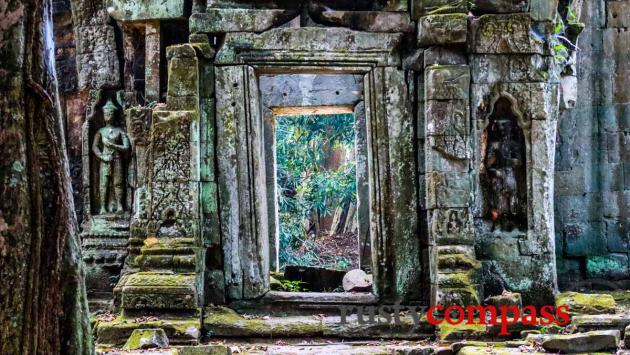
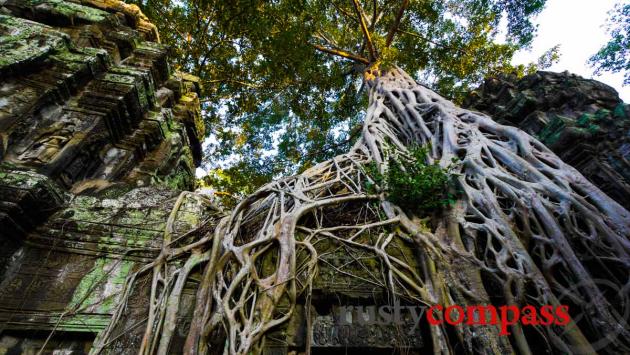

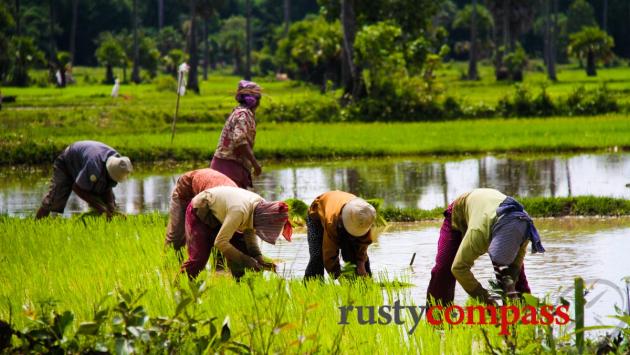
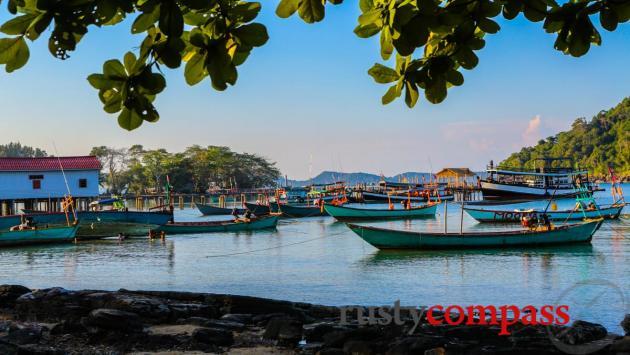
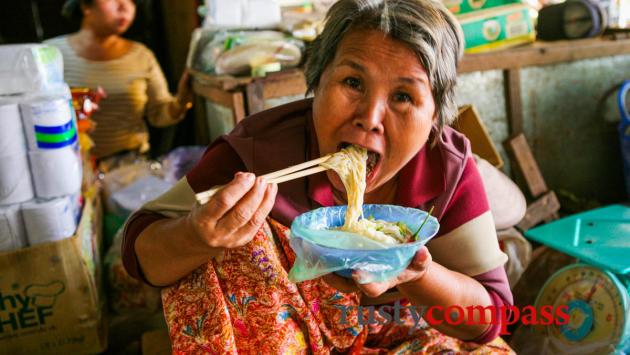
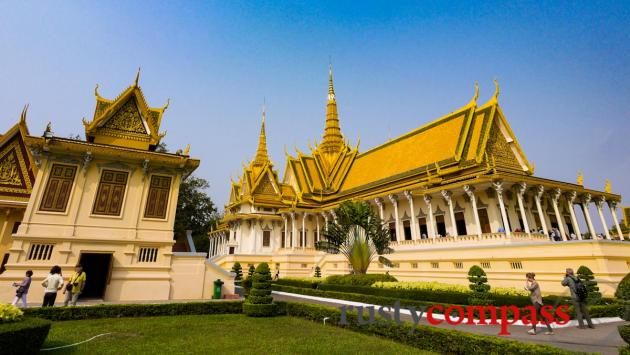
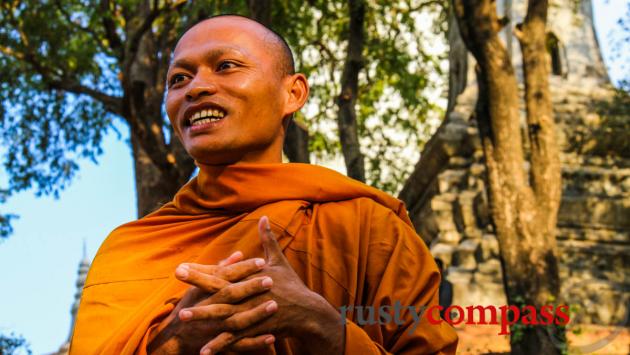






Twitter: @rustycompass
Rusty Compass is an independent travel guide. We’re focused on providing you with quality, unbiased, travel information. That means we don't receive payments in exchange for listings and mostly pay our own way. We’d like tourism to be a positive economic, environmental and cultural force and we believe travellers deserve disclosure from publishers. Spread the word about Rusty Compass, and if you're in Saigon, pop in to The Old Compass Cafe and say hi. It’s our home right downtown on Pasteur St. You can also check out our unique tours of Ho Chi Minh City and Sydney at www.oldcompasstravel.com Make a financial contribution using the link below. Even small amounts make a difference. Thanks and travel well!